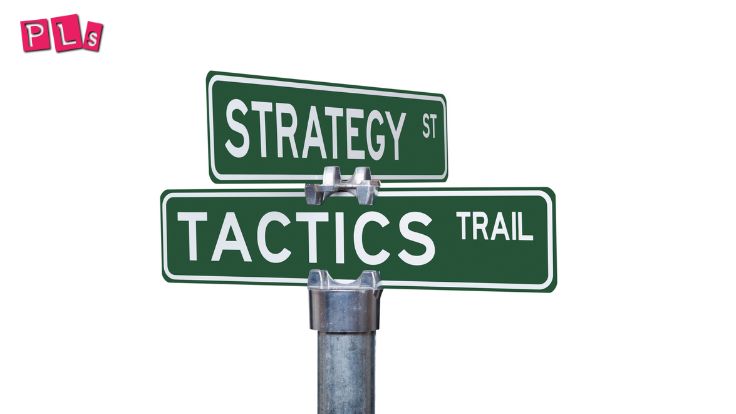
When you consider what ones suffer from narcissists with all their baggage, it is surely not an offence to look for ways on how to confuse a narcissist.
But, first what is Narcissism?
Narcissism is a term used to describe a personality disorder that affects the way people see themselves and how they interact with others. Someone who is a narcissist often has an inflated sense of self-importance, and they tend to prioritize their own needs and desires over those of others.
For example, imagine you have a friend who always wants to be the centre of attention. They interrupt others when they are speaking and constantly talk about themselves, rarely showing interest in others or asking about their lives. They might think that they are the best at everything and always want to be recognized for their achievements, even if it means putting others down or exaggerating their own accomplishments.
Another example could be a family member who is always seeking praise and admiration from others. They might constantly post pictures of themselves on social media, always looking for likes and comments. They might also demand attention and praise from family members and get angry or upset if they don’t receive it.
Related Articles;
- 10 GLARING SIGNS YOU ARE DATING A NARCISSIST
- 5 CLEAR SIGNS YOU ARE NOT A NARCISSIST
- Dating a Narcissist: How It Changes You
Narcissists tend to see themselves as superior to others and may manipulate or exploit others to maintain their sense of power and control. They may also be prone to feelings of envy and anger when they perceive that others are receiving more attention or recognition than they are. With all these traits of narcissism, tell me why you shouldn’t learn how to confuse a narcissist.
Dealing with a narcissist can be challenging, as their manipulative tactics can be exhausting and emotionally draining. However, there may be times when it’s necessary to interact with a narcissist, such as in a personal or professional relationship. In these situations, all you will learn from this article, “how to confuse a narcissist” can be very useful and handy for protecting oneself and maintaining control of the situation. By disrupting their narrative, refusing to engage in their games, and appearing unpredictable, one can reduce the impact of their manipulative tactics and potentially avoid further harm.
In this article, we will explore how to confuse a narcissist using 12 proven strategies and discuss the potential consequences of doing so.
How To Confuse A Narcissist: Understanding the narcissistic mind
Narcissists exhibit many common traits that make them challenging to deal with. These may include a sense of entitlement, a lack of empathy for others, a preoccupation with fantasies of power and success, a need for constant admiration, and a tendency to exploit others for their own gain. Narcissists may also be highly reactive to criticism, even when it is constructive or well-intentioned, and may become defensive or hostile when challenged.
Narcissists tend to see the world through a lens of self-aggrandizement, where their needs and desires take precedence over those of others. They may view themselves as special, unique, or entitled to special treatment, and may have little regard for the feelings or needs of others. Narcissists may also tend to engage in black-and-white thinking, where they view people and situations as either all good or all bad, with little nuance or gray area in between. Because all their tricks have to do with the mind that is why if you want to know how to confuse a narcissist you have to learn how their mind works.
One has to be aware that narcissists may use a variety of manipulative tactics to maintain their sense of power and control over others. These may include gaslighting, where they deny or distort reality to confuse or undermine their victim’s sense of self; projection, where they attribute their flaws or negative qualities to others; and triangulation, where they involve a third party in a conflict to manipulate the situation to their advantage. Narcissists may also use tactics such as blame-shifting, where they deflect responsibility for their actions onto others, and love-bombing, where they use flattery and attention to win over others’ affections.
How To Confuse A Narcissist

Although it may seem counterintuitive, learning how to confuse a narcissist can be a valuable tool in managing relationships with individuals who exhibit narcissistic traits
1. Disrupting their narrative

When dealing with a narcissist, one effective strategy for confusing them is to disrupt their narrative. Narcissists often construct a story about themselves and their actions that paints them in a positive light and justifies their behavior. By challenging this narrative, one can disrupt their sense of control and potentially reduce the impact of their manipulative tactics.
One way to disrupt a narcissist’s narrative is to challenge their version of events. Narcissists may try to manipulate a situation by twisting the facts to make themselves look good or to avoid responsibility for their actions. By pointing out inconsistencies or contradictions in their story, one can disrupt their narrative and potentially expose their manipulative tactics.
Another way to disrupt a narcissist’s narrative is to ask for specifics. Narcissists may use vague or general language to avoid being pinned down on the details of a situation. By asking for specific examples or details, one can force them to be more precise in their language and potentially expose flaws in their story.
Bringing up contradictory evidence can be an effective tactic if you want to learn how to confuse a narcissist by disrupting the narcissist’s narrative. This might involve pointing out discrepancies between what they have said and what others have said or presented evidence that contradicts their version of events. By doing so, one can challenge their sense of control and potentially reduce the impact of their manipulative tactics. However, it’s important to do so calmly and rationally, as a narcissist is likely to become defensive or aggressive when challenged.
2. Refusing to engage in their games

Another effective strategy on how to confuse a narcissist is to refuse to engage in their games. And a very good way to refuse to engage in a narcissist’s games is to simply ignore their insults or attempts to bait you into an argument. By refusing to give them the reaction they are looking for, you can reduce their sense of power and control over the situation.
Another good way to refuse to engage in a narcissist’s games is to change the subject. Narcissists may try to manipulate the conversation to their advantage by steering it towards topics that they feel comfortable with or where they believe they have an advantage. By changing the subject, you can disrupt their sense of control and potentially redirect the conversation in a more productive direction.
In some situations, the best way to refuse to engage in a narcissist’s games is simply to walk away. Narcissists may become increasingly manipulative or aggressive if they feel they are losing control of a situation, and in some cases, it may be best to remove oneself from the situation entirely. By doing so, you can protect yourself from further harm and potentially send a strong message to the narcissist that their behaviour will not be tolerated.
3. Appearing unpredictable

Although it may appear difficult to implement appearing unpredictable is a very important strategy if you want to learn how to confuse a narcissist.
The truth is narcissists, thrive on a sense of control and predictability, so by avoiding patterns in behaviour
Narcissists may try to manipulate others by anticipating their behaviour and using this knowledge to their advantage. So, by avoiding patterns in behaviour, such as changing routines or habits, one can disrupt their sense of predictability and potentially reduce their sense of control.
Not responding predictably to their manipulative tactics, is another way to appear unpredictable to a narcissist. Narcissists may use certain tactics, such as flattery or guilt-tripping, to try to get what they want. By not responding in the way they expect, such as by not being affected by flattery or not feeling guilty when guilt-tripped, one can disrupt their sense of control and potentially reduce the impact of their manipulative tactics.
Finally, being spontaneous can be an effective way to appear unpredictable to a narcissist. Narcissists may try to control situations by anticipating what others will do or say. By being spontaneous and doing things unexpectedly, one can disrupt their sense of control and potentially reduce their ability to manipulate the situation. However, it’s important to be cautious when being spontaneous, as a narcissist may become more manipulative or aggressive if they feel they are losing control.
4. Using humour or sarcasm

When it comes to managing a relationship with a narcissist, understanding how to confuse a narcissist can be a valuable skill.
Humour or sarcasm can be used to disarm the power of a narcissist. By using humour, one can take the focus away from the narcissist’s attempts to manipulate and control the situation. This can help to reduce their sense of power and potentially make them more receptive to alternative approaches to the situation.
Humour or sarcasm is used to highlight the absurdity of the narcissist’s behaviour. Narcissists may engage in manipulative tactics that are patently ridiculous, such as pretending to be a victim or exaggerating their accomplishments. By using humour or sarcasm to point out the absurdity of their behaviour, one can reduce their credibility and potentially reduce the impact of their manipulative tactics.
While using humour or sarcasm can be an effective strategy for confusing a narcissist, it’s important to be careful when using this approach.
5. Giving them mixed messages

Another strategy for confusing a narcissist is to give them mixed messages. And one very smart way to give a narcissist mixed messages is to show both positive and negative emotions. Narcissists may try to manipulate others by eliciting certain emotions, such as admiration or sympathy. By showing both positive and negative emotions, one can disrupt their ability to control the emotional tone of the situation and potentially reduce the impact of their manipulative tactics.
Understanding how to confuse a narcissist can involve using a variety of strategies and giving them mixed messages by acting both interested and disinterested can reduce their sense of control. At this point, you are being unpredictable which in turn disrupts the narcissist’s ability to manipulate the situation, and of course, potentially reduces their sense of control due to the mixed messages.
6. Setting boundaries

Setting boundaries is an important strategy to use if you want to effectively execute the strategies on how to confuse narcissists.
By clearly stating what is acceptable behaviour and consistently enforcing consequences for crossing boundaries, one can disrupt their attempts to manipulate and control the situation.
Firstly, To set boundaries with a narcissist is to clearly state what is acceptable behaviour. This can include setting limits on their demands, expectations, or manipulative tactics. By setting clear boundaries, one can reduce their sense of control and potentially reduce the impact of their manipulative tactics.
Another way to set boundaries with a narcissist is to consistently enforce consequences for crossing boundaries. This can include withdrawing from the situation, refusing to engage with them, or setting consequences that are appropriate for the situation. By consistently enforcing consequences, one can disrupt their sense of control and potentially reduce their ability to manipulate the situation.
While setting boundaries can be an effective strategy for dealing with narcissists, it’s important to be firm and consistent with them. Narcissists may try to test or push boundaries, so it’s important to be clear about what is acceptable and consistently enforce consequences when those boundaries are crossed. It’s also important to communicate boundaries in a way that is assertive but respectful, as this can help to reduce the chances of a confrontational or aggressive response.
7. Withholding information

Withholding information is another strategy for confusing a narcissist.
And one way to withhold information from a narcissist is to be vague or non-committal in your responses. While trying to learn how to confuse narcissists, you should also be aware that narcissists may try to extract information from others to gain a sense of control or power. By being vague or non-committal in your responses, you can reduce their ability to manipulate or control the situation.
Not revealing your true thoughts or feelings is also another way to withhold information from a narcissist. Narcissists may try to use your emotions or vulnerabilities against you, so by keeping your true thoughts or feelings to yourself, you can reduce their ability to manipulate or control the situation.
Again, While withholding information can be an effective strategy for dealing with narcissists, it’s important to be cautious when using this approach. If a narcissist feels that they are being deceived or lied to, they may become more manipulative or aggressive in response.
8. Using reverse psychology

Using reverse psychology is another strategy for confusing a narcissist. Using reverse psychology on a narcissist is to tell them the opposite of what you want them to do. Narcissists may have a strong desire to resist being told what to do, so by telling them the opposite of what you want them to do, you may increase the chances that they will do what you want them to do.
Another way to use reverse psychology with a narcissist is to make them feel like they are in control when they are not. Narcissists may have a strong need to feel in control or powerful, so by allowing them to feel like they are in control while guiding the situation, you can reduce their ability to manipulate or control the situation.
This is a good step if you want to really know how to confuse a narcissist, but you have to be careful with this approach because a narcissist can become aggressive or confrontational in response. It’s also important to use this approach in a way that is appropriate for the situation and the people involved, as this approach may not be suitable for all situations.
9. Appealing to their ego

Another strategy for confusing a narcissist is to appeal to their ego. Narcissists often have an inflated sense of self-importance and a strong desire for admiration and validation, so if you want to know how to confuse a narcissist you have to make them feel like they are the only ones who can solve a problem by using flattery, and with that, you may be able to distract them from the issue at hand and potentially reduce their ability to manipulate the situation.
So, One way to appeal to a narcissist’s ego is to use flattery to distract from the issue at hand. Yes, because of their strong desire for admiration and validation by complimenting them or praising them, you may be able to distract them from the issue and reduce their ability to manipulate or control the situation.
Another way to appeal to a narcissist’s ego is to make them feel like they are the only ones who can solve a problem. Narcissists often have an inflated sense of self-importance and a strong desire to be needed, so by making them feel like they are the only ones who can solve a problem, you may be able to reduce their ability to manipulate or control the situation.
10. Playing Dumb

Playing dumb is another strategy that can be effective in confusing a narcissist. Narcissists often rely on their ability to manipulate and control others, and if you pretend not to understand their tactics, it can disrupt their power dynamic and potentially reduce their ability to control the situation.
For example, if they are using gaslighting techniques to make you doubt your perception of events, you could act confused and ask them to explain what they mean. This can make the narcissist feel like they are losing control of the situation and may reduce their ability to manipulate you.
Another way to play dumb is to act like you don’t see through the narcissist’s behaviour. For example, if they are trying to provoke you into an argument, you could act oblivious and continue talking about a completely different topic. This can make the narcissist feel frustrated and reduce their ability to control the conversation.
You have to also be careful with this strategy so you don’t end up being a target
So, It’s also important to use this approach in a way that is appropriate for the situation and the people involved, as this approach may not be suitable for all conditions.
11. Asking them to explain themselves

Another effective strategy for confusing a narcissist is to ask them to explain themselves. Narcissists often rely on their ability to control the narrative and manipulate others, but asking them to justify their actions or words can disrupt this power dynamic and potentially reduce their ability to control the situation.
So, making them justify their actions or words is a good strategy to ask the narcissist to justify their actions or words. For example, if they make a critical remark about you, you could ask them to explain why they feel that way. This can make the narcissist feel like they are being put on the spot and may reduce their ability to control the conversation.
Another way to use this strategy is to ask the narcissist for clarification or elaboration on something they said or did. For example, if they make a statement that seems untrue or exaggerated, you could ask them to explain further. This can make the narcissist feel like they are being questioned and may reduce their ability to manipulate the situation.
And also, be prepared for their responses
12. Using their tactics against them

One strategy for confusing a narcissist is to use their tactics against them. Narcissists rely on a variety of manipulative tactics to control others, and using these tactics back at them can potentially disrupt their power dynamic and make it more difficult for them to control the situation.
So, a very smart way to use this strategy is to mirror the narcissist’s behaviour back at them. For example, if they try to use guilt or shame to manipulate you, you could use the same tactics back at them. This can make the narcissist feel like they are being treated unfairly and may reduce their ability to control the situation.
Another smart way to use this strategy is to make the narcissist feel like they are being manipulated. For example, you could pretend to be overly enthusiastic about something they said or did, or act as if you are playing along with their manipulative tactics. This can make the narcissist feel like they are losing control of the situation and may reduce their ability to manipulate others.
Potential consequences of confusing a narcissist

Yes, you may have learned how to confuse a narcissist, with the many strategies we mention in this article and other strategies that you can come up with on your own, but it is also important to be aware that there may be potential consequences to these actions. Here are some potential consequences to consider:
1. Anger or retaliation
One potential consequence of confusing a narcissist is that they may respond with anger or retaliation. Narcissists do not like to be challenged or made to feel vulnerable, and they may lash out at those who attempt to do so. This could result in verbal or physical aggression or other forms of retaliation such as smear campaigns or emotional manipulation.
2. Withdrawal or sulking
Another potential consequence of confusing a narcissist is that they may withdraw or sulk. Narcissists thrive on attention and control, and when they feel like they are losing their grip on a situation, they may retreat or become passive-aggressive. This could result in them sulking or giving the silent treatment, or withdrawing from the relationship altogether.
See 16 things narcissists hate alot
3. Escalation of manipulative tactics
When a narcissist feels like they are losing control of a situation, they may escalate their manipulative tactics to regain power. This could result in them using more extreme forms of manipulation, such as gaslighting or love bombing, in order to regain control and maintain their position of power.
4. Possibility of ending the relationship
While you are executing all the ways on how to confuse a narcissist, it’s important to be aware that confusing a narcissist may result to the end of the relationship. Narcissists are often unwilling or unable to change their behaviour, and if they feel like they are losing control of a situation, they may choose to end the relationship rather than continue to engage with someone who is challenging their power.
Benefits of confusing a Narcissist
- It may give you a sense of control: Dealing with a narcissist can be challenging and can often leave you feeling powerless. Confusing a narcissist may provide a temporary sense of control and empowerment in the situation.
- It may help to de-escalate the situation: If a narcissist is being particularly aggressive or combative, intentionally confusing them may be a way to de-escalate the situation and prevent it from escalating further.
- It may help you to avoid confrontation: Confusing a narcissist may allow you to sidestep a potentially confrontational situation. By causing them to become confused or unsure, they may back down or become less aggressive.
- It may help you to protect your boundaries: If a narcissist is attempting to cross your boundaries, intentionally confusing them may be a way to reinforce those boundaries and prevent them from continuing to cross them.
- It may expose their true nature: Narcissists thrive on control and manipulation, and intentionally confusing them may cause them to reveal their true nature. This can be a valuable insight into their behaviour and can help you to better understand how to navigate the situation.
- It may help you to disengage: Engaging with a narcissist can be draining and exhausting, and intentionally confusing them may help you to disengage from the situation and move on. This can be particularly important if the relationship with the narcissist is toxic or abusive.
- It may help to protect your mental health: Dealing with a narcissist can be emotionally taxing and can take a toll on your mental health. Intentionally confusing them may provide a way to protect your mental health by creating a bit of distance from the situation.
Conclusion
Knowing how to confuse a narcissist is one thing and finally dealing with a narcissist can be another challenging and draining experience, although we have highlighted some proven strategies that can be used to confuse them and protect oneself. But, It’s important to remember that confusing a narcissist can come with potential consequences such as anger, retaliation, and even the end of a relationship. However, it’s equally important to protect oneself and maintain healthy boundaries in any relationship.
If you find yourself in a relationship with a narcissist, it may be helpful to seek support from a therapist or support group. Remember, it’s not your responsibility to fix or change a narcissist, and it’s okay to prioritize your well-being and safety.
In summary, confusing a narcissist can be a useful tool in dealing with their manipulative behaviour, but it’s important to do so while also prioritizing one’s well-being and safety.
FAQs
What is a narcissist?
A narcissist is someone who has an excessive sense of self-importance, a deep need for admiration, and a lack of empathy for others.
Why would someone want to confuse a narcissist?
There may be situations where someone needs to protect themselves or others from a narcissist’s harmful behaviour, and confusion can be a way to disrupt their manipulative tactics.
What are some tactics for confusing a narcissist?
Some tactics for confusing a narcissist might include using indirect communication, giving them mixed messages, or intentionally contradicting their statements.
Is it safe to confuse a narcissist?
It’s important to be cautious when dealing with a narcissist, as they can become aggressive or vengeful when they feel threatened or challenged.
Can confusing a narcissist change their behaviour?
It’s unlikely that confusing a narcissist will change their fundamental personality traits, but it may disrupt their behaviour in the short term.
Is it possible to have a healthy relationship with a narcissist?
It’s challenging to have a healthy relationship with a narcissist, as they tend to prioritize their own needs over others and may lack empathy for their partners.
Can therapy help a narcissist change their behaviour?
Narcissistic personality disorder is difficult to treat, but therapy may be helpful in managing symptoms and improving relationships.
What are some warning signs of a narcissist?
Some warning signs of a narcissist may include an exaggerated sense of self-importance, a lack of empathy for others, a need for constant admiration, and a tendency to manipulate others.
Leave a Reply